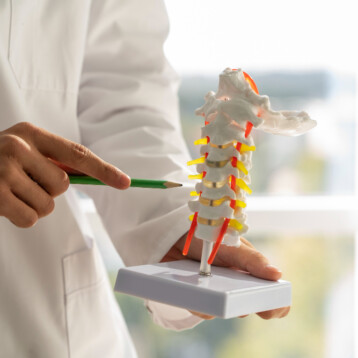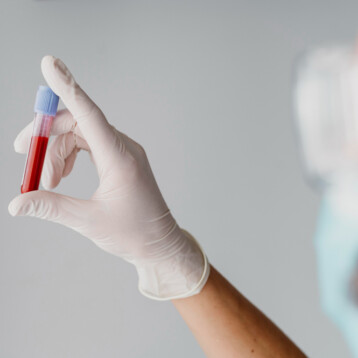|
Gastroesophageal reflux disease (GERD), often called acid reflux, is a condition caused by stomach contents rising into the esophagus. Digestive acids can damage esophageal walls and make the esophagus more vulnerable to other diseases. GERD is very widely spread in developed countries and is strongly correlated with esophageal cancer. This type of cancer has spread dramatically over the last 25 years, with the numbers of effected people having gone up about 350 percent in the U.S. and Europe during this period of time. Early identification of esophageal cancer from GERD symptoms can save many lives
Currently, testing for GERD symptoms causes great discomfort for the patient: a wire is inserted through the anesthetized patient’s nose and down the esophagus to the stomach opening. Electrodes at the tip of the wire measure acid coming up toward the throat, and have to stay in place for 48 hours to achieve a diagnosis. This intrusion causes many patients to become so conscious of their situation that they stop regular eating, drinking, sleeping or work activities, thus harming the reliability of the measurements.
The potential solution comes from the electrical engineering field. Associate Professor J.C. Chiao is working on tiny, wireless, battery-free sensors able to give readings almost instantaneously using radio frequency identification (RFID) technology. An RFID chip receives radio transmissions and then uses that energy to retransmit information back to a receiver. This technology has not been used widely in the medical field, though it is used in other areas, including tracking inventory, smart credit cards, and weapon detection.
Convinced that this technology could be used to help GERD testing, Chiao joined forces with Dr. Shou-Jiang Tang, a clinician and assistant professor of internal medicine at UT Southwestern whose research focuses on GERD and esophageal cancer.
|
The new procedure they are developing will still require local anesthesia, yet it will be much less invasive and uncomfortable. Tiny, flexible RFID tags will be planted into the esophagus and will record changes in the acidity levels and eventually will be flushed out of the system “the natural way”. Chiao plans to use a special plastic for the tags that will cause no discomfort for the patients. While in the body, the sensors relay data wirelessly to a receiver outside the body, which then sends the data to a computer to be analyzed.
Additionally, using RFID enables measuring not only acidity levels, but also impedances. Impedance is the resistance to flow of electric current, which differs between materials and tissues. When the electrode sensor comes into contact with different substances, the impedance readings change. This will allow researchers to make the important distinction between acidic foods going up and acidic digestive juices going up.
There is a lot of work to be done, as the devices are still being tested. The next stage will be gaining approval to test on live animals before the first human patients can be recruited for testing. Chiao also wants to enable the use of this device in other medical fields, such as pain management, starting with blocking chronic pain signals at the spinal cord using RFID implants.
TFOT has recently covered other devices used for cancer detection and diagnosis, such as the T-ray scanner developed by the U.S. Department of Energy’s Argonne National Laboratory, the Lab-on-a-Chip developed at the Texas University for detection of oral cancer, and an infrared camera that can take a thermal image of the head and neck area of cancer patients, developed at the Argonne National Laboratory.
For more information on new medical RFID technology, visit the University of Texas at Arlington’s press website.












